Lab school legislation, which divided Laramie and lawmakers, dies in House
Andrew and Chestek voted for the bill, which would have forced UW and Albany County Schools to compromise. Provenza and Sherwood voted against, citing constitutional concerns.
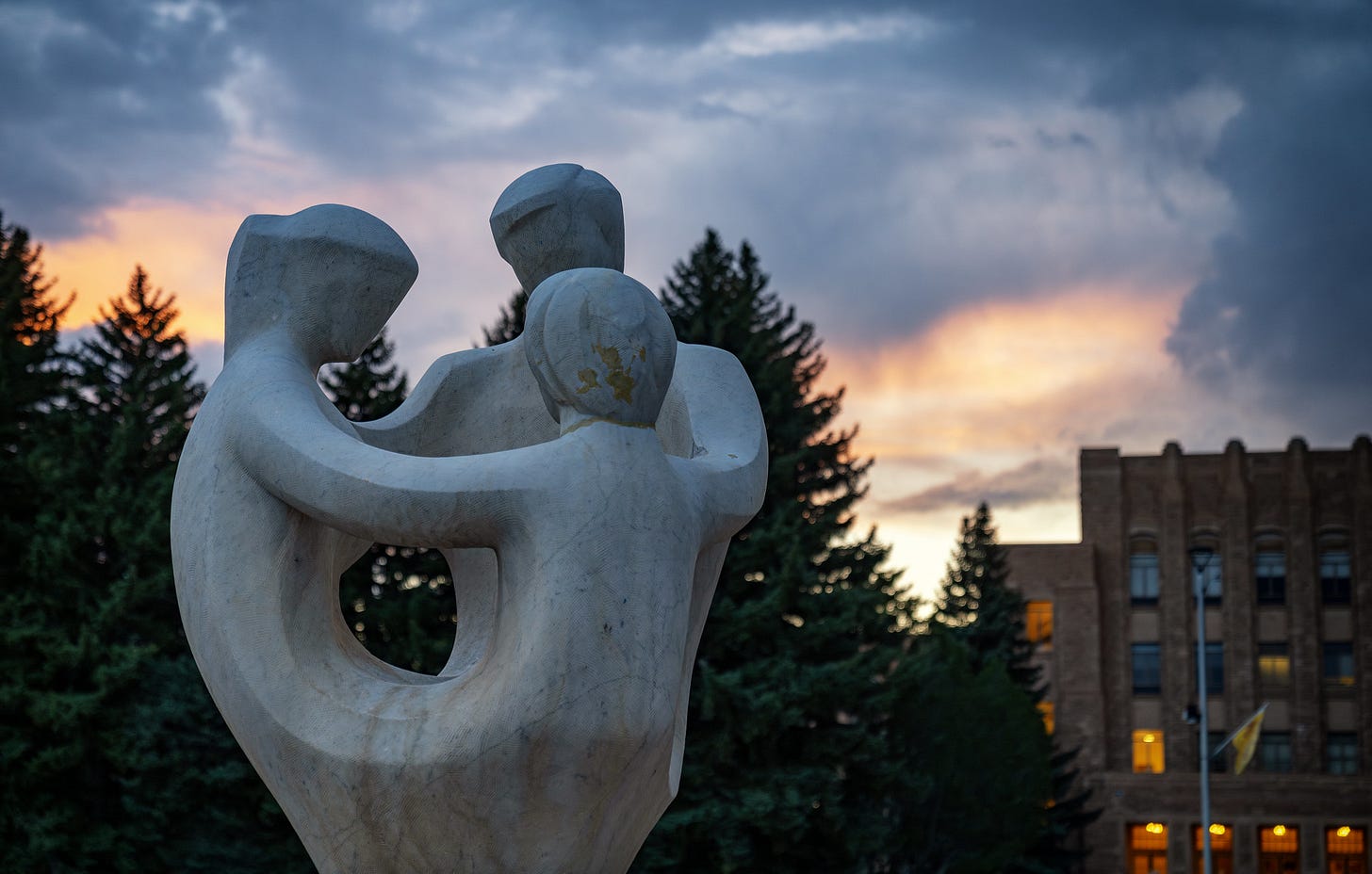
The Wyoming House defeated a bill meant to save the University of Wyoming Lab School, thus ensuring the K-8 school of choice will close forever after more than 130 years in operation.
The UW Lab School is administered by Albany County School District No. 1 but located on the University of Wyoming campus, serving as a training ground for future teachers enrolled in UW’s College of Education.
Albany County Rep. Ocean Andrew (HD-46), who co-sponsored the legislation and helped it to advance out of the education committee he chairs, carried the bill on the House floor Friday.
“This legislation is not about saving a school; it is about protecting a legacy and educating future generations of Wyoming teachers,” he said. “The lab school was originally created to train Wyoming’s future teachers while simultaneously providing exceptional hands-on, project-based education for K-8 students. This dual mission has set it apart as a beacon of educational excellence for over a century.”
For more than an hour, lawmakers raised concerns about the bill’s constitutionality, debated whether it would trample local control, and lamented the deep divisions the proposal has fostered in Laramie specifically.
The bill, Senate File 126, died on a 24-32 vote that divided even its own sponsors.
‘What do you do with something that’s broken?’
For roughly the last two decades, the UW Lab School has been authorized by a series of agreements between the university and the school district. Negotiations surrounding the latest agreement imploded last year, leading UW to evict the school from campus.
UW’s spokespeople have since argued the lab school was no longer functioning as a “laboratory” for testing out innovative techniques and programs, and further that the lab school is no longer necessary for training future educators, given new technologies and the opportunities for student teacher placements across the state.
The Albany County School Board was left with few options.
Rather than relocating the school off-campus — losing some of the amenities that made Lab unique — the board voted to shutter the school and redistribute its students and resources to other schools across town.
Though they could not agree on a path forward for the lab school itself, UW and ACSD No. 1 were then united in their stance that the lab school should close, with both entities allowed to “move on.”
But there was a groundswell of support for the lab school, led by alumni, teachers and parents. In local listening sessions and committee hearings, they pointed to the school’s unique role in the state and its value to those currently or formerly enrolled as they advocated for the school’s continued existence.
Visibly emotional as he addressed the House floor Friday, Laramie Rep. Ken Chestek (HD-13) said the lab school issue “has been tearing up our community.”
“There’s no bad actors here; there’s all good people all around,” Chestek said, adding he knows and respects both district and university leaders.
But in the absence of a local deal to preserve the school, he added, legislation had become necessary.
“Even if you think it’s broken, what do you do with something that’s broken?” Chestek said. “You have two choices, right? You can fix it, or you can throw it away. I don’t want to throw this away. I want to fix it. I think the students deserve it to be fixed.”
Enter Senate File 126. Sponsored or co-sponsored by all six members of Albany County’s delegation, the bill would have forced the university and the district to work out an agreement that keeps the lab school open.
The bill, and the future of the school, have dominated discourse in Laramie for months.
Deep division, even among bill sponsors
The legislation divided more than the Laramie community.
It also divided the local legislators in both the House and the Senate, who were split when it came time to cast a final vote on the legislation they themselves sponsored.
Three ultimately voted against it, while the other three voted in favor. Those votes were not along party lines, nor divided by chamber.
In the Senate, Sen. Chris Rothfuss (SD-9) was a consistent champion of the legislation and voted to preserve the lab school; Sen. Gary Crum (SD-10) voted against.
Crum told the Laramie Reporter he initially supported the legislation to foster conversation. He said he felt — by the time SF126 came up for its third and final vote in the Senate — the bill had accomplished that purpose.
The Senate passed SF126 with an 18-12 vote.
In the House — which killed the legislation during its first and only appearance on the chamber floor — Chestek and Andrew voted in favor; Rep. Trey Sherwood (HD-14) and Rep. Karlee Provenza (HD-45) voted against it.
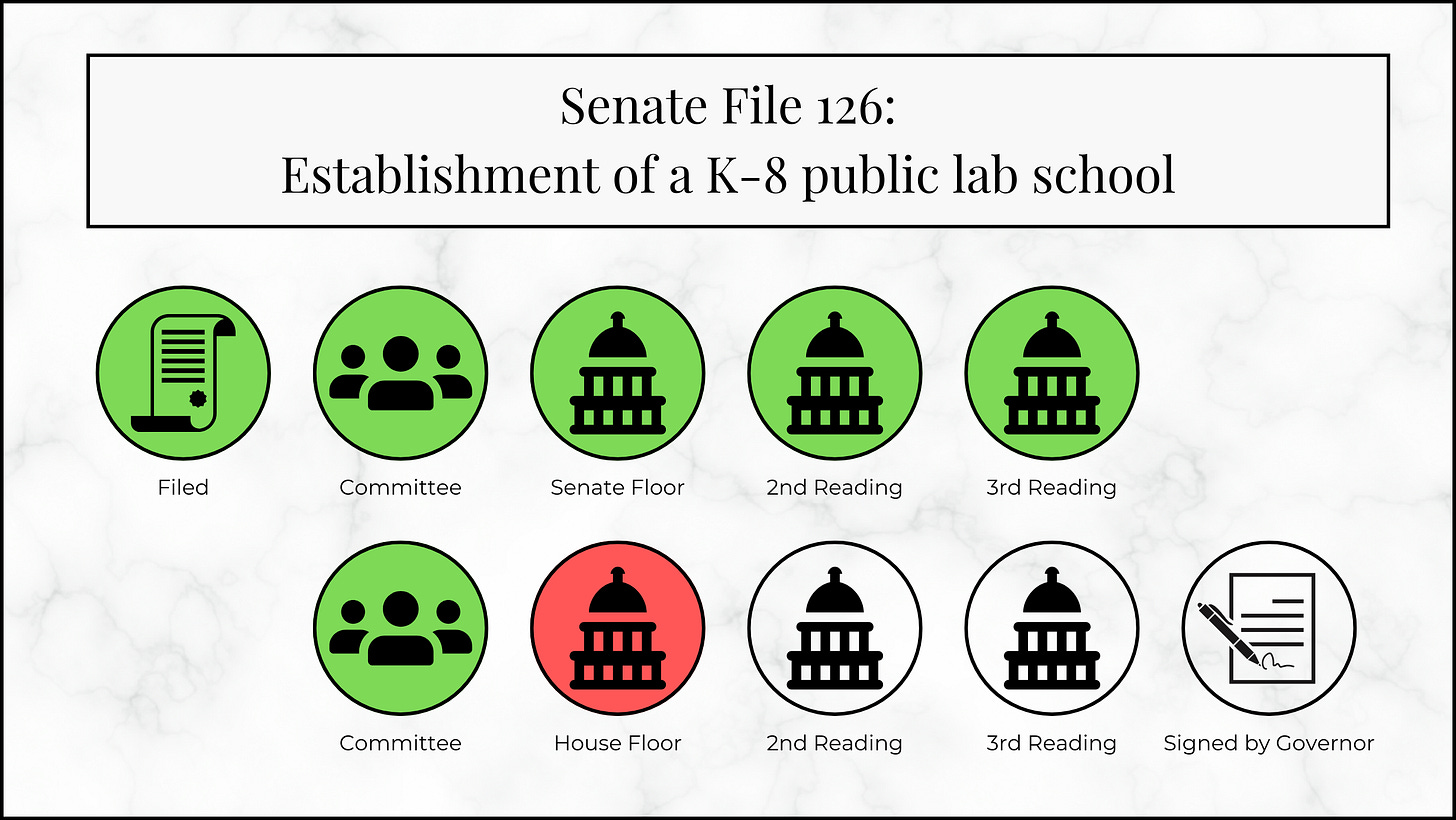
Provenza said it wasn’t easy deciding to vote against a bill she brought into being and defended in committee. But she said issues with constitutionality and local control ultimately swayed her.
“I have not ever been so emotionally torn up by a bill,” Provenza told her fellow representatives. “I wish I could have my cake and eat it too. I really do. My county commissioners asked me to vote no on this bill because they think that it opens the door to eroding other decisions locally when people are upset with their local government.”
Provenza said her own initial support for the legislation was “in part to hopefully get the university to backtrack.”
“Part of what this bill was meant to do was be a threat: let’s fix this so that we can mediate this process,” she said. “Otherwise the legislature is going to bring a bill and meddle in this local issue.”
That didn’t work. The university stood firm in its decision to ax Lab, demonstrating that no resolution other than one mandated by the state legislature would keep the lab school open and on-campus.
But as the session started, Provenza said she spoke to lawyers and started to realize the bill she had been pushing could be unconstitutional. Specifically, she told the body it would run afoul of:
Article 3, Section 27, which prohibits “local or special laws … providing for the management of common schools” and;
Article 7, Section 17, which dictates that the “government of the university” must be managed by the UW Board of Trustees.
“I don’t come up and just say that your bills are unconstitutional; I’m coming up and telling you that so is mine,” Provenza said, referencing her own propensity to challenge the alleged constitutional violations of her colleague’s bills — such as those that divert public money to “sectarian” institutions. “And I’m going to take heat for that back home.”
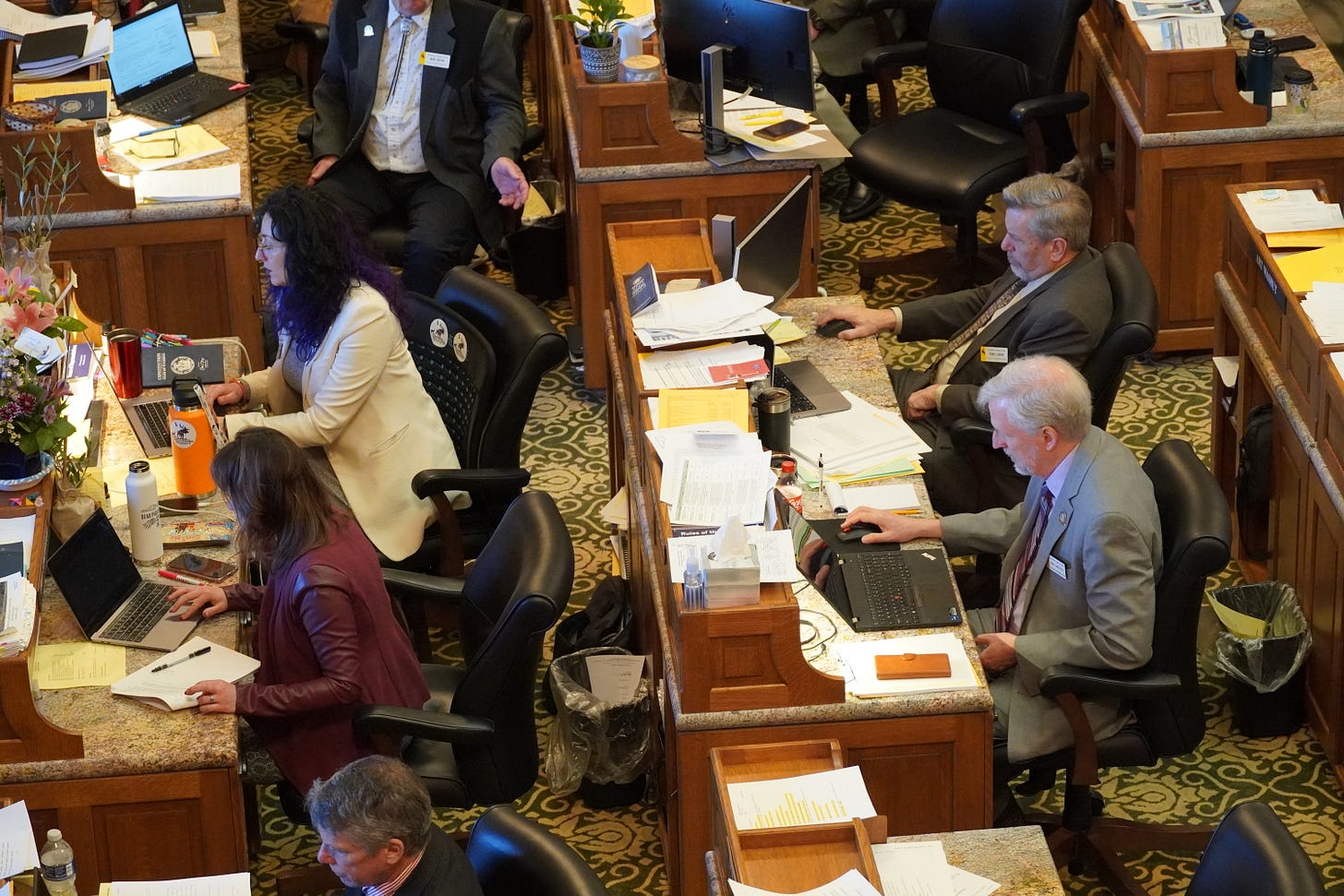
Ultimately, Provenza urged the House to reject the lab school legislation.
“As much as I want to save my community school — and I want to have my cake, and I want to eat it too, and I want to finish what I started — I can’t,” she said. “And that pains me, and it pains my community. And again, body, I apologize that we’re in this position.”
Though she didn’t speak on the House floor, Sherwood took to social media after the floor session to explain her own ‘no’ vote to constituents.
“There are people on both sides of the issue that I love dearly, teachers and students. At the end of the day, I must uphold the oath I swore to our constitution,” she writes. “I know many are hurt by the decision to close Lab. My heart breaks with you.”
State interest vs. local control
Lawmakers supporting the lab school bill — including Laramie’s Rothfuss — consistently argued Lab is a state institution with a unique purpose: training future educators while serving as a “laboratory” for new teaching methods and techniques.
Andrew echoed these sentiments on the House floor.
“This bill is for the parents and students that are in your district, because the purpose of this school is to teach teachers and send educated teachers around the state to teach kids in your school,” he said.
Other representatives were not convinced.
“This really feels like we’re being asked to micromanage a local school,” Casper Rep. Art Washut (HD-36) said. “I don’t think this is the proper role of the state legislature. If the school board there in that community and the university can’t get together and work this out, I don’t see where it’s our place to impose this.”
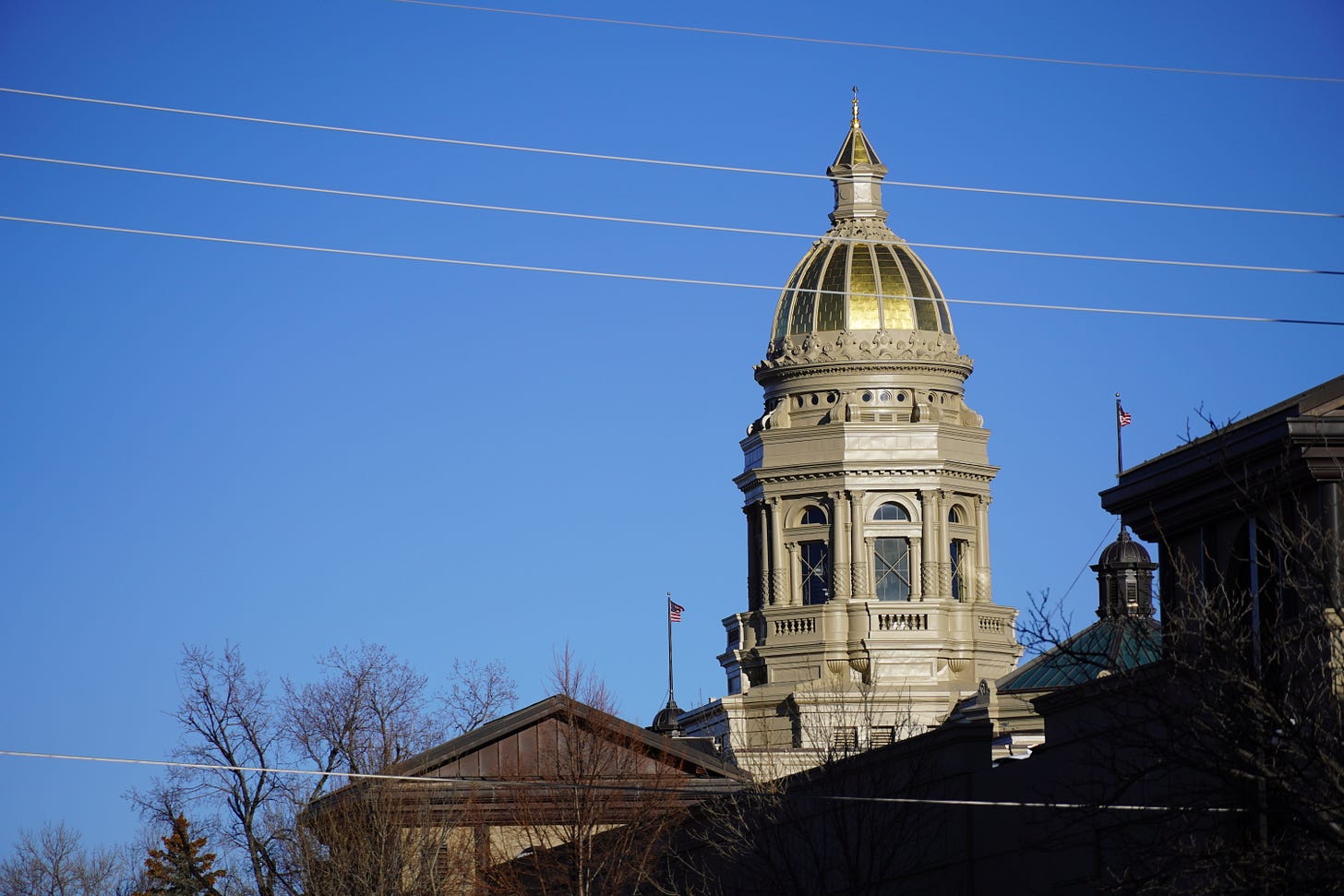
Worland Rep. Martha Lawley (HD-27) said she was “very sympathetic” to the situation Lab School parents and students are in, but warned this bill would open the door to others like it.
“It is simply not the role of the state legislature to come into a situation like this and make themselves a sort of court of last resort,” she said. “We will become inundated by these situations once people realize that we’re going to hear their case and take care of their plight, rather than continue to encourage the local governments to address these issues, which are their responsibility under the law.”
The House ultimately sided with these arguments, voting 24-32 to reject the legislation. The UW Lab School is slated to close at the end of the current semester.




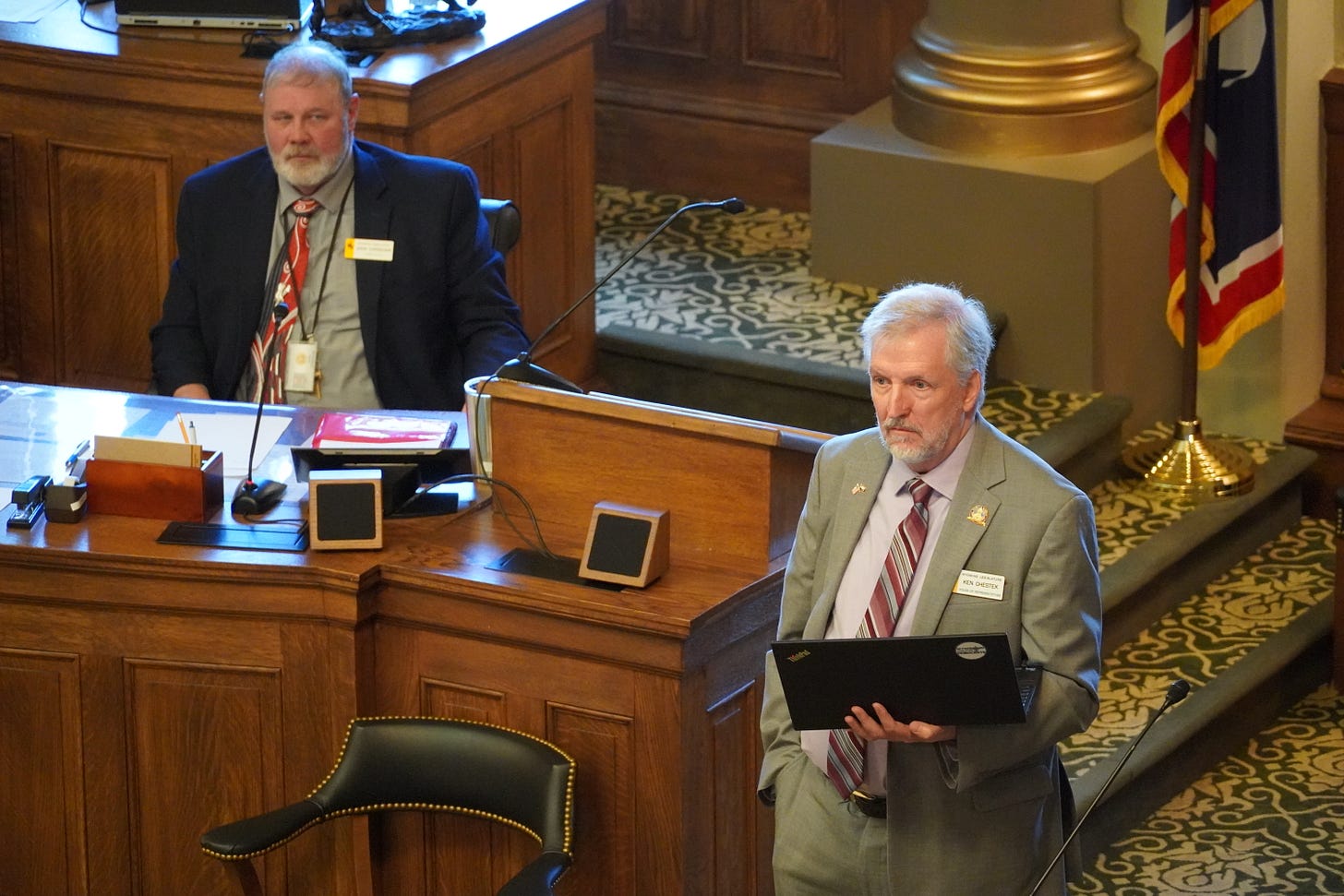
What we learned here is UW has the ability to not back down to the legislature - when it wants to do so.